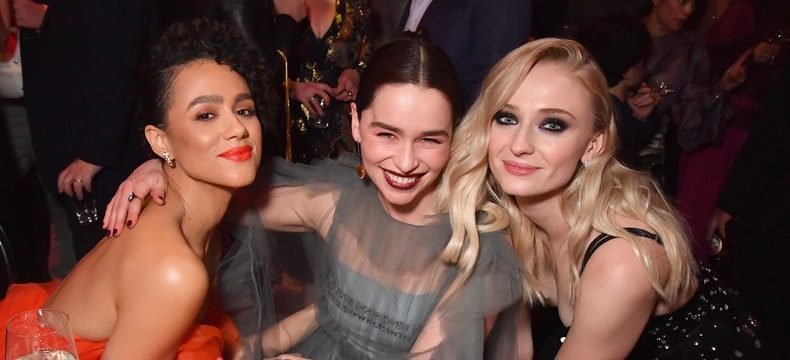As the eighth and final season of Game of Thrones has wrapped up the various strands of plot it unspooled over the 72 preceding hours of television, fans have found a lot to criticize—but perhaps nothing so much as the sudden execution, at the hands of the Mountain, of Missandei of Naath, one-half of the series’ most star-crossed couple played by actress Nathalie Emmanuel. In the aftermath of her death, the show was criticized for, alternately, reducing her to a victim; reducing her to motivation for Grey Worm’s eventual revenge quest; killing off the only major woman of color on a show not exactly known for its on-screen diversity; and, more abstractly, “you deserved better,” as Emmanuel described in a new interview with Porter Edit.
“But it’s Game of Thrones,” she continued. “There’s no justice.” In fact, Emmanuel said, she was satisfied with Missandei’s abrupt demise. (It all happened quite swiftly; at the beginning of one episode, she was captured during a failed invasion from the sea; by the end, she had been summarily decapitated as evidence of Cersei Lannister’s unwavering cruelty.) “In that last scene, you felt her fear but also her strength and her bravery. I love that ‘f–k you,’” she said, describing Missandei’s final words: “Dracarys,” Daenerys Targaryen’s directive to her dragons to blow stuff up with fire. “I was really proud of it.”
Ditto the series finale, even though her character departed several episodes before the show drew to a close: “I felt really satisfied and fulfilled by it,” she told Porter Edit. “People will be really surprised.”
Of course, Emmanuel is also aware of the symbolic and representational freight carried by her character that would lead fans of the show to leap to her defense. “She goes out in such a brutal way, in chains, which is obviously hugely weighted because of the fact that she was once enslaved,” she told Elle in an interview published earlier this month. And while she mostly stuck to the show’s plot—pointing out that Missandei became an enemy target because she was so close to Daenerys; that the scripts explicitly outlined the reactions elicited among the Westerosi because she and co-star Jacob Anderson were “brown people coming into a very white part of the realm”—she also acknowledged the power of diverse representation on screen. “You come up in this industry and you come up in life, and you want to see yourself onscreen,” she told Elle. “Often, I didn’t. The idea that I was that for our audience has been overwhelming and amazing.”
There’s one blessing we can see in being written off the show prior to the finale: Nathalie Emmanuel, unlike showrunners D.B. Weiss and David Benioff, probably won’t need to stay far, far away from the internet.
Emilia Clarke arrives at the 12th Annual AFI Awards held at the Four Seasons Hotel Los Angeles at Beverly Hills on January 13, 2012 in Beverly Hills, California.
Source: Read Full Article
































